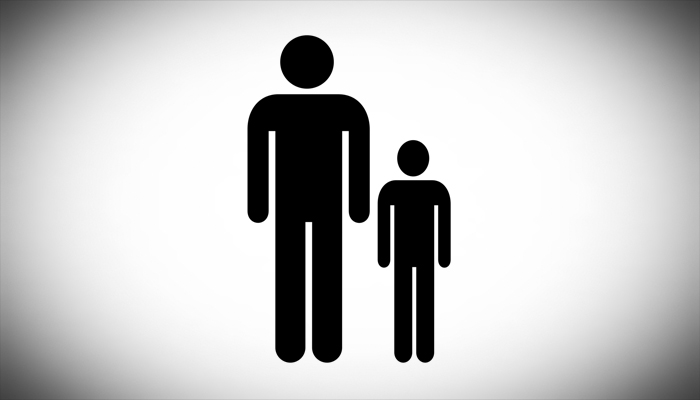The following is an excerpt from my newest book, Illegal Prayers.
Look closely at verse 5 of Luke 11.
Which of you shall have a friend, and go to him at midnight and say to him, “Friend, lend me three loaves.”
Our parable is in black and white until you see two words that turn it into technicolor. The first kaleidoscopic word is midnight. To grasp the story, you’ve got to see the entire proceedings shaking down at midnight. Everything in the vignette is unplanned, inconvenient, and ill-timed for everybody.
When Jim first shows up at Dave’s door, knocks, and asks for bread, he’s not doing anything wrong. It’s permissible to knock on someone’s door. Once. But when Dave says, “It’s midnight. Shut up, get off my property and go back to bed,” and Jim continues to knock and call out, we have laws for this kind of behavior. We call it trespassing. Harassment. Disturbing the peace. Once Dave says, “Get off my property,” and Jim continues to stand at midnight and call for assistance, he is now breaking the law.
I am not stretching the parable to suggest Jim is breaking the law. If you don’t think this is illegal behavior, then go ahead and give it a shot. Go down the road, knock at somebody’s door at midnight, refuse to get off their property, and see what happens. You may find yourself in handcuffs.
Jesus could have put the parable at another time of day, such as high noon, but by placing it at midnight He subtly designed an illegal setting. When you see that Jesus positioned Jim to be breaking the law, you realize He was actually advocating illegal prayers.
Jim is now violating city ordinances. In a very real sense, he is serving his friend Dave an ultimatum. “I’m not going anywhere, so you have a choice. Call the cops, or give me your three loaves.”
But Jim is thinking to himself, I don’t think you’re going to call the cops. Our friendship is too strong. Our families are too close. We’ve known each other for too many years. Before you call the cops, I think you’re going to drag your carcass out of bed, go to your pantry, and get your three loaves.
Jim is now putting pressure on the relationship. He’s about to discover if their friendship can sustain this kind of strain or if it will break. Jim is wondering, Are you just a fairweather friend? Are you my friend only when things are great, or are you also my friend when things are hard?
By straining the relationship, Jim is drawing on his relational equity with Dave. He’s about to find out whether he’s accrued enough collateral in their relational bank to cash in on it in a time of need.
Illegal prayers leverage relational equity.
Relational equity is earned through time spent together and favors done for each other. Jim has undoubtedly done many little favors for Dave over the years, and now he has the boldness to expect a favor in return. In terms of our relationship with Christ, this reminds me of 1 Timothy 3:13, “For those who have served well as deacons obtain for themselves a good standing and great boldness in the faith which is in Christ Jesus.” When we are faithful in our service for Christ, we gain the boldness to pray audacious prayers in our time of need.
Jim felt secure enough in his friendship with Dave to demand assistance in a way that actually broke the law. In a similar sense, if you’re going to pray illegal prayers, you better have a friendship with God. Don’t wait for a crisis to hit before you start investing in your relationship with God. Build relational equity with God now, so that when the crisis hits you have a friendship to fall back on.
Just because you’re bold in the presence of God does not mean you’re a spoiled brat with a spirit of entitlement; it means you’re someone who has confidence in your beloved Friend.
Confidence will say to God, “If You say no, I’m not leaving. If You say later, I’m not leaving. The only way I’ll quiet down is if You give me Your three loaves.”
Illegal prayers are rooted in the relational confidence of knowing your God and, even better, being known by Him. You can have enough confidence in your friendship to believe that ever before He gets angry and swats you into outer space, He’s going to give you the healing bread He has in His heavenly pantry.
The title of this book—Illegal Prayers—wasn’t chosen because I thought it was a clever title. I chose it because of what’s going on in the parable. Jim is praying illegal prayers at Dave’s door. But Jesus’ parable is not the only instance of illegal prayers in the Bible. There are a few others.
Hannah
Hannah could not have children, and it vexed her soul greatly. Consumed with longing to have a child, she went into the house of the Lord and began to pour out her heart in prayer. Finally, in the anguish and desperation of her soul, she said, “O LORD of hosts, if You will indeed look on the affliction of Your maidservant and remember me, and not forget Your maidservant, but will give Your maidservant a male child, then I will give him to the LORD all the days of his life” (1 Sam. 1:11).
She was so desperate for a son that she said, “If You give me a son, I’ll give Him back to You.” And as the story turned out, she gave birth to a son whom she turned over to Eli, the priest. Thus, her son Samuel was raised in the house of the Lord by Eli.
Was Hannah’s prayer legal? Is it permissible to abandon your child like that? How about “abandonment” laws? True, she gave him to the care of another; but Eli wasn’t that great of a caretaker. He had a poor record with his own sons, so what made him fit to be a father to Samuel?
At the least, the story is unconventional. And yet, God used Hannah’s barrenness—and the desperate cry her barrenness generated—to answer her prayer and give her a son. The cry of a desperate mother enabled God to procure, in Samuel, the prophet He needed to transition the nation of Israel from the era of the judges to the era of the kings.
Daniel
In the days when Babylon was the ruling world empire, Babylon invaded Israel and took Daniel, along with many other Jews, back to Babylon. Because of his wisdom, Daniel was promoted to a place of political prominence in the kingdom. Later, when Babylon was conquered by Persia, Daniel continued to serve in a place of eminence in the empire. He had so much favor with the king that the princes of Persia grew envious.
The princes conspired a way to get rid of Daniel. Under false pretenses, they convinced the king to enact a decree that no one be allowed to pray to any god but the king for thirty days (see Daniel 6). If someone prayed to another, they were to be thrown into the lion’s den.
As soon as Daniel learned that this legislation had been signed into law by the king, he went to his home, opened his window toward Jerusalem, and prayed to his God. He would allow nothing to stop his practice of praying three times a day to the God of Israel. If he could no longer pray legal prayers, then he would pray illegal prayers.
And his illegal prayers got him into serious trouble. He was arrested and thrown into the lion’s den. But God stood by His man, sent His angel, and shut the mouths of the lions. What started as illegal prayers ended in a mighty deliverance.
Isaiah
In the book of Isaiah, God invited us to pray in a manner that strikes the reader as illegal or, at the very least, irreverent.
Thus says the LORD, the Holy One of Israel, and his Maker: “Ask Me of things to come concerning My sons; and concerning the work of My hands, you command Me” (Isa. 45:11).
Some translations have reworded the verse to make it more palatable, but our translation here is altogether accurate. God is actually inviting His servants to command Him to do what they want.
Commanding God? Telling God what to do? Isn’t that presumptuous, arrogant, and disrespectful of His sovereignty? Isn’t that kind of praying illegal?
The Overcrowded House
Here’s another story that somehow seems to be suspiciously unlawful:
And again He entered Capernaum after some days, and it was heard that He was in the house. Immediately many gathered together, so that there was no longer room to receive them, not even near the door. And He preached the word to them. Then they came to Him, bringing a paralytic who was carried by four men. And when they could not come near Him because of the crowd, they uncovered the roof where He was. So when they had broken through, they let down the bed on which the paralytic was lying. When Jesus saw their faith, He said to the paralytic, “Son, your sins are forgiven you.” And some of the scribes were sitting there and reasoning in their hearts, “Why does this Man speak blasphemies like this? Who can forgive sins but God alone?” But immediately, when Jesus perceived in His spirit that they reasoned thus within themselves, He said to them, “Why do you reason about these things in your hearts? Which is easier, to say to the paralytic, ‘Your sins are forgiven you,’ or to say, ‘Arise, take up your bed and walk’? But that you may know that the Son of Man has power on earth to forgive sins”—He said to the paralytic, “I say to you, arise, take up your bed, and go to your house.” Immediately he arose, took up the bed, and went out in the presence of them all, so that all were amazed and glorified God, saying, “We never saw anything like this!” (Mark 2:1-12).
We know that Jesus broke many rules of His day. He ate with unwashed hands; He allowed His disciples to pick and eat grain on the Sabbath; He told a cripple to carry his bed on the Sabbath, etc. But in this story, He broke one of my rules! I have a rule that says you must repent before you can be forgiven. But here, Jesus forgives a man who didn’t even repent of his sins. Can you do that? Is that legal?
Furthermore, the four men who brought him to Jesus broke the law. Folks, you can’t just take apart somebody’s roof, even if your motives are noble. Call it breaking and entering. Call it vandalism. Whatever you want to call it, it’s illegal.
But Jesus called it faith. And healed the man.
Woman with a Hemorrhage
Here’s still another biblical instance where laws were broken. There was a woman in Israel who had a problem in her reproductive organs that precipitated ongoing blood loss. None of the physicians she consulted could staunch the flow of blood; instead, her condition grew worse.
One day she heard that Jesus of Nazareth would be passing through town. Jesus! The Son of God! The Healer! It’s now or never. Faith filled her heart. If I could just touch the hem of His garment, I know that would be enough. I know I would be healed of this infirmity.
But there was a problem. The law of Moses commanded that anyone with this kind of bodily discharge live sequestered and isolated from the community (Num. 5:2). Such a person was ceremonially “unclean,” meaning they were prohibited from coming into the temple to worship while thus defiled. Furthermore, Moses’ law explained that, if a person who was unclean because of a hemorrhage touched someone else, the other person would be defiled by that touch and rendered ceremonially unclean as well—that is, unable to worship in the temple until ceremonially cleansed (Lev. 15:19). God considered it unjust for an unclean person to defile others through physical contact, even though their personal problem was unfortunate. So He passed a law stipulating that an unclean person must be quarantined from others until cured.
The law, therefore, prohibited this woman from mixing in public places. And yet, Jesus was thronged by multitudes. How could she possibly touch the hem of His garment when He was surrounded by such masses? Furthermore, everyone in town knew she lived in seclusion because of uncleanness. If they saw her in the crowd, they would thrust her out immediately. What could she possibly do to get within touching distance of Jesus?
She grabbed a shawl, draped it across her shoulders, and pulled it down over her head. Then bending low so that her face was not visible to anyone, she began to shove her way through the crowd.
As she pushed through the legs of the crowd, she might have whispered, “Excuse me,” under her breath. Each person she wiggled past and brushed against was defiled by her physical contact. “Excuse me, sorry about that.” She wasn’t meaning to defile others; she simply had no other option. “Pardon me, sorry about that.” But she continued to push and shove her way to Jesus.
By the time she got to Jesus, she had broken the law some 235 times (or however many people she had touched on her way to Jesus). That’s why, when Jesus called out, “Who touched My clothes?” she trembled in fear and tried to hide. She didn’t want to be exposed as having violated Moses’ law countless times in order to receive her healing.
When she could hide no longer, she fell before Jesus and told Him everything. How did Jesus respond to her illegal quest? He said to her, “Daughter, your faith has made you well. Go in peace, and be healed of your affliction” (Mark 5:34).
What kind of faith is so bold that it is willing to defile even the Son of God Himself in order to get an answer?
This woman knew that to touch His garment, she would have to push past a crowd of opinions. So will you. There are all kinds of rational voices that will try to talk you out of pushing through to Jesus’ hem.
“You deserve hell, so just be thankful for what you’ve got.”
“He’s already done so much for you, if He never does another thing for you, it’s more than enough.”
“You just need to focus on giving glory to God, whether by life or by death.”
“This is not about you.”
I agree with all of you. You have great theology. But get out of my way. I’ve got to touch Jesus!
Jesus Advocates Illegal Prayers
These examples of illegal prayers in the Bible serve to substantiate the scenario Jesus painted in Luke 11 with our fictitious characters, Jim and Dave. By having Jim on Dave’s doorstep at midnight and refusing to remove himself—which is against the law—Jesus was advocating illegal prayers. Jesus was intimating, “You have a relationship with God. Go for broke. Break the law. Forget the rules. Push the envelope. Violate protocol. Brook no denial. Demand attention.”
Jesus’ message here is quite startling. “You’re a beloved friend—a child of God. So ditch propriety. Go for the jugular. Call the question. Press the point. Strain the relationship. Despise political correctness. Contravene convention. Test the limits. Cross the line. Throw caution to the wind. Pray illegal prayers.”
When you go to offering such bold prayers, you might want to keep your voice down—because if someone overhears your prayer, he might step aside, fearing a lightning strike. “You’re not supposed to talk to God like that!”
But that eavesdropper is not the one with whom you have this friendship, and he’s not the one to whom you’re praying. So just move yourself out of his earshot, and talk to your Friend.
If you enjoyed this excerpt and want to learn more about my newest book, Illegal Prayers, you can click here.









